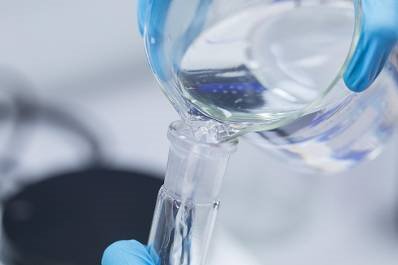Still not filtering your samples? Well you should be! Faced with unrelenting analytical demands and uncompromising expectations for quality, speed and reproducibility, chromatographers need a reliable method for the preparation and sterilization of biological samples to remove impurities. Filtering samples before HPLC, UHPLC and LC/MS analysis helps improve system performance and analytical quality. But how can you make sure that you choose the right filter for your samples?
Increasing sample integrity (and your savings!) with sample filtration
Your time is precious and so are your samples. Sample filtration offers an easy way to improve accuracy without adding time to the chromatographic process. Sample filtration before analysis provides numerous benefits, including greater sample integrity, improved accuracy, optimal instrument performance, extended column life time and reduced system downtime.
Column plugging is the most common cause of column failure. Even small amounts of injected particulates can cause problems including inlet clogging, increased backpressure, retention time shift, resolution loss and shorter column life. These problems are especially true for high-pressure sub-2 µm columns, which are more sensitive to pressure increases. Particulates can affect various components in the LC flow path, potentially causing carryover, sample crosstalk and leakage. By removing impurities and particulates, sample filtration helps to prevent column failure, extend column lifetime and ensure proper system performance. Filtration is therefore, vital – and so is choosing the right syringe filter for your application.
Choosing the right syringe filter
There are three simple questions you need to ask to help you choose the right syringe filter for your application:
• What type of sample and matrix am I analyzing?
• What is the volume of my sample?
• What is the pore size of the column?
Click here to try the Syringe Filter Online Selection Guide, which makes it fast and easy to choose the best syringe filter. Agilent Captiva Syringe Filters have the industry’s highest flow rates and loading capacities and offer many benefits including:
- Flexibility with a wide range of sizes, formats, and membranes to cover every matrix and sample
- HPLC or LC/MS certificates for premium syringe filters, guaranteeing low levels of observed extractables
- Manufactured using the highest-grade housing and membrane materials for excellent flow, maximum sample loading capacity, and to ensure sample integrity
- Econofilters are shipped in large packs, and are ideal for busy labs that need fast, efficient filtration at a reasonable price.
Syringe filter performance
Low protein binding and cleanliness are important features of a syringe filter’s performance. Polyethersulfone (PES) and polyvinylidene fluoride (PVDF) membranes are typically used for biological sample filtration and can provide very low protein binding. PVDF membranes are widely used for filtering biological samples targeted to protein and peptide analysis. However, PVDF syringe filters can cause contamination during filtration, which can damage the integrity of samples. Common protein analysis techniques may not observe these contaminants due to limited detector sensitivity and selectivity. Therefore, it is critical to use the cleanest filter to prevent the introduction of any contamination during sample preparation.
Captiva Premium PES syringe filters have been shown to limit the increase of column backpressure even after 1000 injections. In one study, Agilent Captiva Premium PES syringe filters were evaluated and compared with other PES and PVDF syringe filters for filtration recovery, targeted to protein analysis and chemical cleanliness. Captiva Premium filters provided superior recoveries (<97%) over other PDVF syringe filters for proteins, dimers and monomers. The results demonstrate how Captiva Premium filters can firmly support the analysis of low-level protein samples with minimal loss during filtration.
Therefore if you want to improve your instrument performance, reduce system downtime and improve the integrity of your samples, make sure that you implement sample filtration into your workflow. By choosing the right syringe filter, you can ensure that filtration is fast, easy and effective saving you valuable time and money.
Keywords; sample filtration; syringe filters; HPLC; UHPLC; LCMS; chromatographers; column lifetime; backpressure; separation; Captiva

